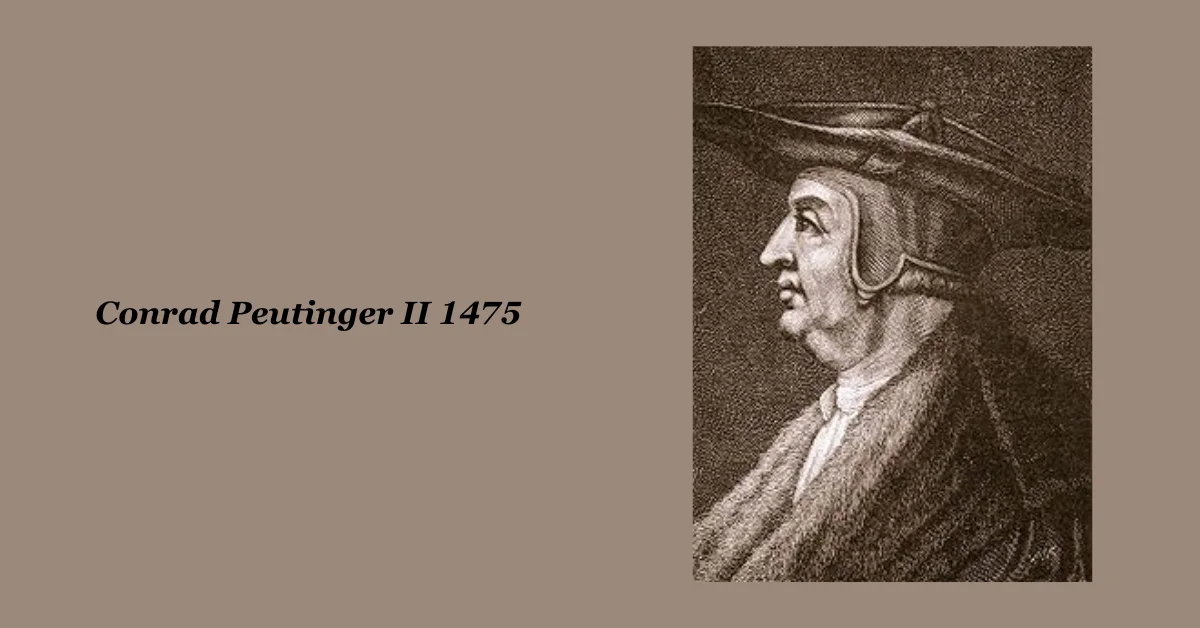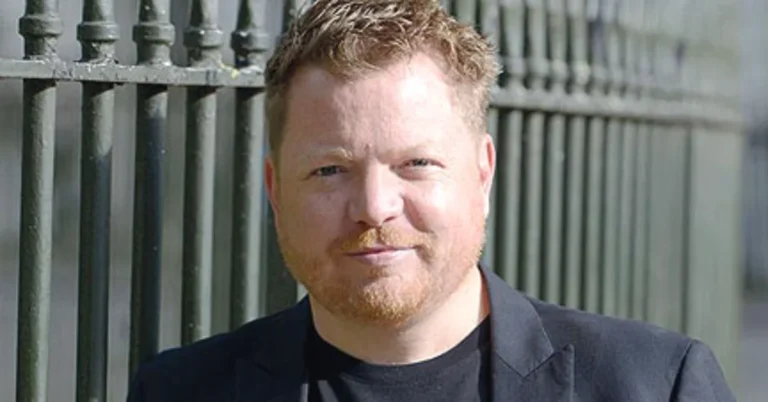Conrad Peutinger II 1475: Pioneer of Renaissance Humanism
Conrad Peutinger II 1475, born in Augsburg, Germany, in 1475, was a significant figure of the Renaissance era. His life and work spanned many fields, including law, humanism, diplomacy, and scholarship, making him a crucial player in the intellectual and political landscape of the early 16th century. This article explores Peutinger’s life, his achievements, and his legacy, providing insight into one of the foremost humanists of his time.
Conrad Peutinger II Early Life and Education
Peutinger was born into a prominent family in Augsburg, a major center of commerce in the Holy Roman Empire. His father, Conrad Peutinger I, was a wealthy merchant, which allowed the young Peutinger access to education and intellectual circles from an early age. Augsburg was an important city for trade and the dissemination of new ideas during the Renaissance, making it an ideal environment for Peutinger’s intellectual development. He studied at several leading universities of the time, including those in Italy, where he was exposed to the ideals of humanism. Peutinger earned a law degree at the University of Padua, a city renowned for its scholarly contributions to Renaissance humanism. His time in Italy greatly influenced him, particularly his exposure to classical texts, philosophy, and the revival of ancient Roman ideas in art, politics, and culture.
Conrad Peutinger II Political and Diplomatic Career
Upon returning to Augsburg, Conrad Peutinger II embarked on a successful career as a lawyer and a politician. He served as the city’s syndic, a legal advisor, and was involved in diplomatic missions on behalf of the Holy Roman Emperor Maximilian I. Peutinger’s legal and political career provided him with a platform to engage in broader European diplomatic affairs. Allowing him to travel extensively and interact with other intellectuals of the time.
One of Peutinger’s key contributions in the political sphere was his involvement in the Imperial Diets. Which were gatherings of the Holy Roman Empire’s various estates. His diplomatic skills and knowledge of Roman law made him an invaluable asset in negotiating between different factions within the Empire. Peutinger’s career in diplomacy also provided him with opportunities to collect ancient manuscripts. Coins, and artifacts, further fueling his passion for classical studies.
The Tabula Peutingeriana: A Masterpiece of Cartography
The Tabula Peutingeriana is an ancient Roman road map that Peutinger came across in the early 16th century. It stretches over 22 feet long and represents a visual network of the Roman road system from Western Europe to India. The map, originally copied from Roman cartographers, was intended to aid travelers and merchants in navigating the empire’s extensive roads, rivers, and cities.
Peutinger Intellectual Legacy
Peutinger’s contributions to the fields of classical scholarship, politics, and diplomacy were vast, but his intellectual legacy also extended into his extensive correspondence with some of the leading humanists of his time. He was part of a larger network of scholars that included Erasmus of Rotterdam, Johannes Trithemius, and Johannes Reuchlin, all of whom shaped the intellectual currents of the Renaissance in Germany and beyond. Peutinger’s correspondence covered a wide range of topics, from Roman history to contemporary political events. Through these letters, he helped disseminate humanist ideas and supported the revival of classical texts in the vernacular. His intellectual exchanges with other scholars further cemented his reputation as a key figure in Renaissance humanism.
Read More: Jennifer Lake and Ivy Oaks
The Intersection Of Cartography And History
The Role of Cartography in Understanding History
Cartography is more than just the art of map-making; it is a powerful tool for understanding history. Maps provide context to historical events, illustrating how geography influences political, cultural, and social developments. Conrad Peutinger’s work exemplifies this intersection, as his maps not only documented the physical landscape but also reflected the historical narratives of the time.
Exploring Further: The Connection to Modern Geography
The contributions of Conrad Peutinger II in 1475 resonate even in our modern world. As we navigate through life with GPS on our smartphones and digital maps at our fingertips, it’s essential to remember the roots of this knowledge. The passion for exploration and understanding the world is a timeless endeavor. Imagine if Conrad had access to today’s technology. He would undoubtedly marvel at the ability to instantly connect with people across the globe, sharing maps and ideas in real time. His work laid the foundation for the geography we know today, blending ancient wisdom with modern innovations.
Conrad Peutinger II Contributions to Law and Civic Reform
In addition to his humanist and diplomatic efforts, Peutinger also worked extensively in the field of law. His legal expertise was invaluable to the governance of Augsburg, where he implemented reforms aimed at improving civic administration and justice. His background in Roman law, combined with his humanist philosophy, guided his approach to governance, where he sought to apply principles of fairness and justice rooted in classical traditions.
Conrad Peutinger II Peutinger Later Years and Death
Peutinger remained active in both intellectual and political spheres until his death in 1547. In his later years, he focused increasingly on his collection of manuscripts and artifacts, which he hoped to leave as a legacy for future generations. His death marked the end of an era for Augsburg, but his influence continued to be felt in both the intellectual and political realms.
After his death, Peutinger’s vast collection of Roman artifacts, manuscripts, and his famous map were passed on to libraries and collectors, ensuring that his work would continue to influence scholars for centuries to come. Today, Conrad Peutinger is remembered as one of the key figures of the German Renaissance, a scholar who bridged the ancient world and the modern one through his commitment to humanism, diplomacy, and scholarship.
FAQs
Who was Conrad Peutinger II?
Conrad Peutinger II was a prominent humanist, lawyer, diplomat, and scholar born in 1475 in Augsburg, Germany. He played a significant role in the intellectual and political landscape of the early 16th century.
What were Peutinger’s main contributions?
Peutinger’s contributions included his work in law and politics, particularly as a syndic of Augsburg and a diplomat for the Holy Roman Emperor Maximilian I. He is also known for his collection of ancient manuscripts and his involvement in the creation of the Tabula Peutingeriana, a detailed map of the Roman road system.
What is the Tabula Peutingeriana?
The Tabula Peutingeriana is an ancient Roman road map that Peutinger encountered in the early 16th century. It is approximately 22 feet long and illustrates the Roman road system from Western Europe to India, serving as a vital tool for travelers and merchants.
How did Peutinger influence the Renaissance?
Peutinger was part of a network of leading humanists, including Erasmus and Johannes Trithemius. His extensive correspondence with other scholars helped disseminate humanist ideas and supported the revival of classical texts in the vernacular, cementing his reputation in the Renaissance movement.
Conclusion
Conrad Peutinger II stands out as a pivotal figure of the Renaissance, whose contributions to law, diplomacy, and humanism significantly shaped the intellectual landscape of his time. His extensive education and engagement with classical scholarship laid the groundwork for his influential roles in Augsburg and beyond. Through his diplomatic efforts and the creation of the Tabula Peutingeriana, he not only documented the Roman world but also fostered the exchange of ideas that characterized the Renaissance. Even after his death in 1547, Peutinger’s legacy endured, inspiring future generations of scholars and humanists. Today, he is celebrated as a bridge between the ancient and modern worlds, exemplifying the enduring impact of Renaissance humanism on Western thought and culture.
Read Next: FC2-PPV-4476315 Wiki






